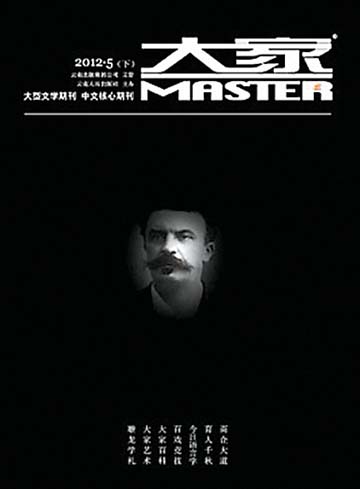|

Cao Zhen
caozhen0806@126.com
AFTER paying 5,800 yuan (US$920) in “page fees” to Master magazine’s editorial department, Shen Xin (a pseudonym), an institute teacher in eastern Zhejiang Province, successfully had her 3,000-character thesis published in the magazine in March.
When Shen got a copy of the magazine, she was confused that it was not the literary biweekly Master, but a similar one which focuses on car maintenance, home decoration, computer science and arts articles.
The copycat, which was labeled “Master (Theoretical Edition),” published three issues per month but shared the same publication house name, price and serial number as the literary Master.
Master suspended
Master, a State-owned literary magazine in southwestern Yunnan Province, was suspended by provincial press and publication administrators June 26 after Beijing Youth Daily reported that the magazine’s editorial department was running another version of the renowned literary magazine with the same serial number and charging hefty fees from readers who wanted to publish their articles.
Run by the Yunnan People’s Publishing House, Master was founded in 1994 and is only allowed to publish literary works or critiques. It was frequently listed in the national or provincial key periodicals catalog. Since 1998, as China has edged towards becoming a free market economy, local governments have spent less on funding magazines, leaving them to fend for themselves.
Wang Jiannan, deputy Party chief of the magazine, told Beijing Youth Daily that since 2005, the magazine was losing 700,000-800,000 yuan every year. In order to cover salaries, writers’ contribution fees, printing and operation costs, they had to issue the Theoretical Edition in 2010 and charged “page fees” from writers.
The newspaper reported that the fees, normally 4,000-5,000 yuan for a 5,000-character article, was collected by private agencies, which were authorized by Master. The Theoretical Edition made an estimated 20 million yuan each year, the report alleged.
However, Wang said most of the fees were taken by the agencies and the editorial department only got 100-800 yuan per article. He also said that according to a document issued in 1988 by the China Association for Science and Technology, charging “page fees” was reasonable and possible if the periodicals had financial problems and the fees collected were only used for maintaining their operations.
Global Times quoted Liu Changqiu, associate researcher with the Institute of Law at the Shanghai Academy of Social Sciences, as saying that authorities later banned the collection of “page fees” but it still occurs nationwide.
Literary magazines face crisis
“I feel sympathy for Master. The plight of literary magazines goes hand in hand with the plight of literature,” said Cheng Yongxin, executive editor-in-chief of Harvest, an eminent literary bimonthly founded in 1957 by renowned writers Ba Jin and Jin Yi in Shanghai.
“Literary magazines had their heyday in the 1980s because literature played an important role in readers’ leisure time, but nowadays new media are dragging away readers,” said Cheng.
“Literary magazines provide an apprenticeship for budding writers but much of the public lacks the sophistication to enjoy serious literature, so it’s tough to rely on circulation revenue for literary magazines,” said Zong Renfa, editor-in-chief of Writers Magazine in northeastern Jilin Province.
According to a report conducted by writer Zhang Lijun, there are more than 900 literary magazines in China, 10 percent of the country’s total periodicals. Most of the magazines, which were run by local writers’ associations or municipal/provincial publication houses, were short of funds.
“Fewer readers, less circulation, less advertising revenue,” said Zhang. “Some government-funded literary magazines only get 60,000-200,000 yuan in funds every year, making it difficult to make ends meet.”
Way out
Although most literary magazines’ circulation is as low as several thousand copies per issue, Harvest still boasts 100,000 copies in the country’s top list. Run by Shanghai Writers’ Association, the State-owned magazine has tried many means of expanding its market share in recent years.
Cheng said Harvest’s readers are mainly middle-aged or from rural areas because of the magazine’s longtime reputation. In recent years, in order to attract young readers, the magazine serialized novels of popular young writers like Guo Jingming and raised contribution fees.
“We also opened cultural columns, inviting big names like Yu Qiuyu and Huang Yongyu to write for us,” said Cheng. “After covering operation costs, we made profits.”
Facing the challenge from new media, Cheng plans to build a Web site for Harvest and has turned to online literature. “Considering the market doesn’t mean to dump literary quality. Although literature magazines are a niche market, we still need quality works for literature lovers,” said Cheng.
Master, a State-owned literary magazine, was suspended June 26 after being accused of running another version of the magazine with the same serial number and charging hefty fees from readers who wanted to publish their articles.
|

